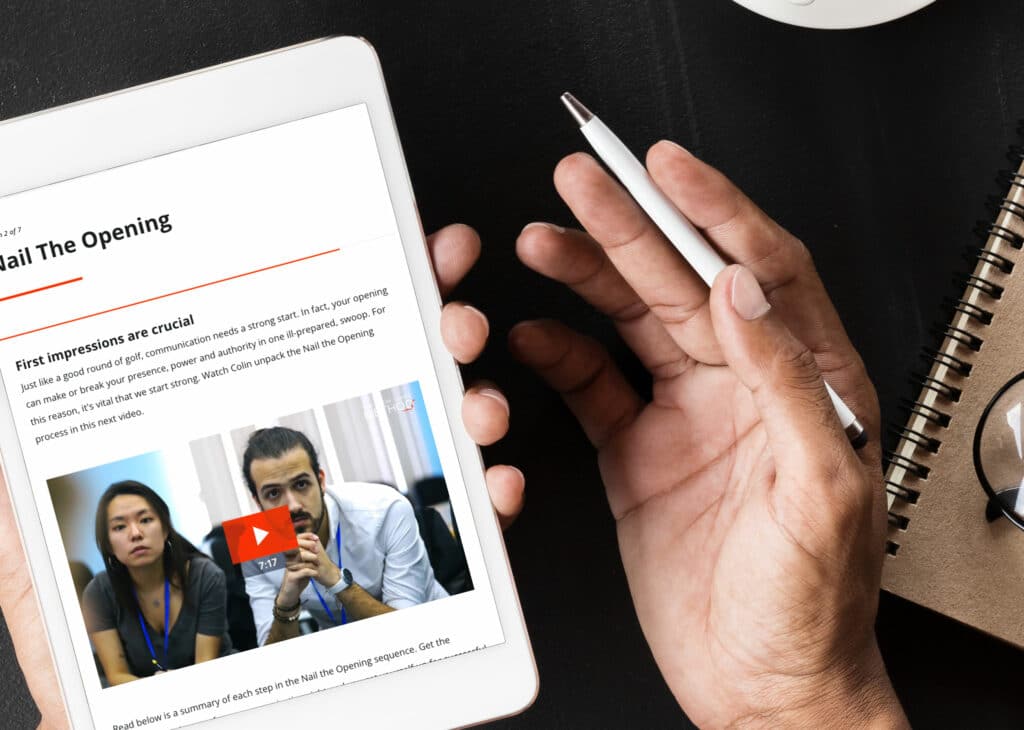In business, being busy is generally a good problem to have — it means there’s work. But busyness is the enemy of reflection, which can only happen when we take time to stop, look back and evaluate.
From evaluation comes learning and growth. It’s a process of unpicking our actions and seeing what can be done better. This is the basis of critical thinking, which is a leadership quality reported to be lacking in many business leaders.
If we look at project management, there’s a budget, a timeframe and work that must be completed within those two parameters. We have a progress trajectory and a certain amount of production that must be completed every day in order to stay on course.
For many project managers and team members, it always seems to be a race against the clock. However, there will be some people in your team that are known for their consistently high performance. They deliver ahead of time or under-budget on a regular basis. Time and budget management seem to come naturally to them.
So, what’s their secret? Imagine if, as a senior leader, you could extract this “secret sauce” and inject it into the rest of your team? This can happen with the implementation of a critical thinking framework as part of your organisational development plan.
Training everyone in your team to think like a leader
For many business leaders, it’s all about achieving the current goal and moving onto the next. But where’s the space and time for learning and growth?
Ask yourself, how are you tracking performance currently? Have you built critical thinking into your project team’s rhythm to ensure consistent improvement? What is your culture like; does it encourage critical thinking and resilience?

Let me illustrate this point with an example.
We have just been approached by a financial services organisation that has a culture of politeness. This culture, while it may avoid conflict, is stifling feedback, which in turn squashes growth and excellence. This organisation needs to reinvent itself, its culture and evaluation processes. Without an open and honest feedback loop, the continuous improvement culture required to adapt the business quickly is unlikely to emerge. This is where our tailored communication training comes in. Developing an open, confident and thoughtful approach to communication throughout your organisation helps to support a strong and effective workplace culture.
Now let’s look at a positive example.
We work with the retail banking arm of one of Australia’s largest banks. As part of their process, they have a weekly team meeting. At each meeting, they share a client case study and work through how they could have improved the experience for both that client and the branch team.
This is a great example of how critical thinking can pave the way for strategic change.
It’s in meetings like these that teams are able to extract the “secret sauce” from high achievers and learn in what areas they’re winning as a team and in which ones they’re losing. This embeds a reflect/learn/improve cycle into the rhythm of operations, so successes can be repeated and failures avoided.
In the video below I talk in more depth about the ‘Reflect, Learn & Improve’ model and how you can utilise this in your team.
Make your commitment to critical thinking in leadership and teams
So, stop and ask yourself these questions. How are you tracking performance in your teams? How are you embedding a ‘reflect, learn, improve’ rhythm into your operations?
Consider your current processes and whether they are up-to-scratch. Are you committed to making the necessary shift?
The time is now. In the current highly competitive and uniquely difficult business world in which we’re operating, it’s mission-critical to update current frameworks to ensure there is valuable reflection time built in for critical thinking.
We work directly with leaders and their teams through tailored communication training to help build collaboration, confidence and authority so people are more willing to stand up and say their piece. If you’re interested, you can learn more here and enquire now.
The Colin James Method® Facilitators train corporate executives to improve their professional communication skills with a proven methodology. Our highly trained Facilitators and Coaches are recognised for their experience in their fields and have worked with many individuals and organisations around the world to master the art of communication.
FAQ
Why critical thinking is important in the workplace
Critical thinking is important in the workplace because it enables teams to reflect, learn from and improve on previous experiences. This drives a process of continuous improvement within the business which in turn allows the company to meet deadlines, achieve KPI’s and leads to growth. Exactly what the CEO is looking for!
How critical thinking helps organisations
Critical thinking helps businesses to grow and thrive in challenging times by empowering each individual within the team to learn from the successes (and failures) of themselves and others. It’s important to create a culture that facilitates and supports critical thinking as well as incorporating it into the team’s day-to-day process.
Where do you use critical thinking?
Critical thinking can be used in any business and team, on an individual level (evaluating your own performance) and as a group (evaluating the team’s performance). Learning from both your success and your failures provide invaluable intel. Build time to reflect into project meetings, weekly catch-ups and monthly reviews to spot areas you can streamline and improve.












